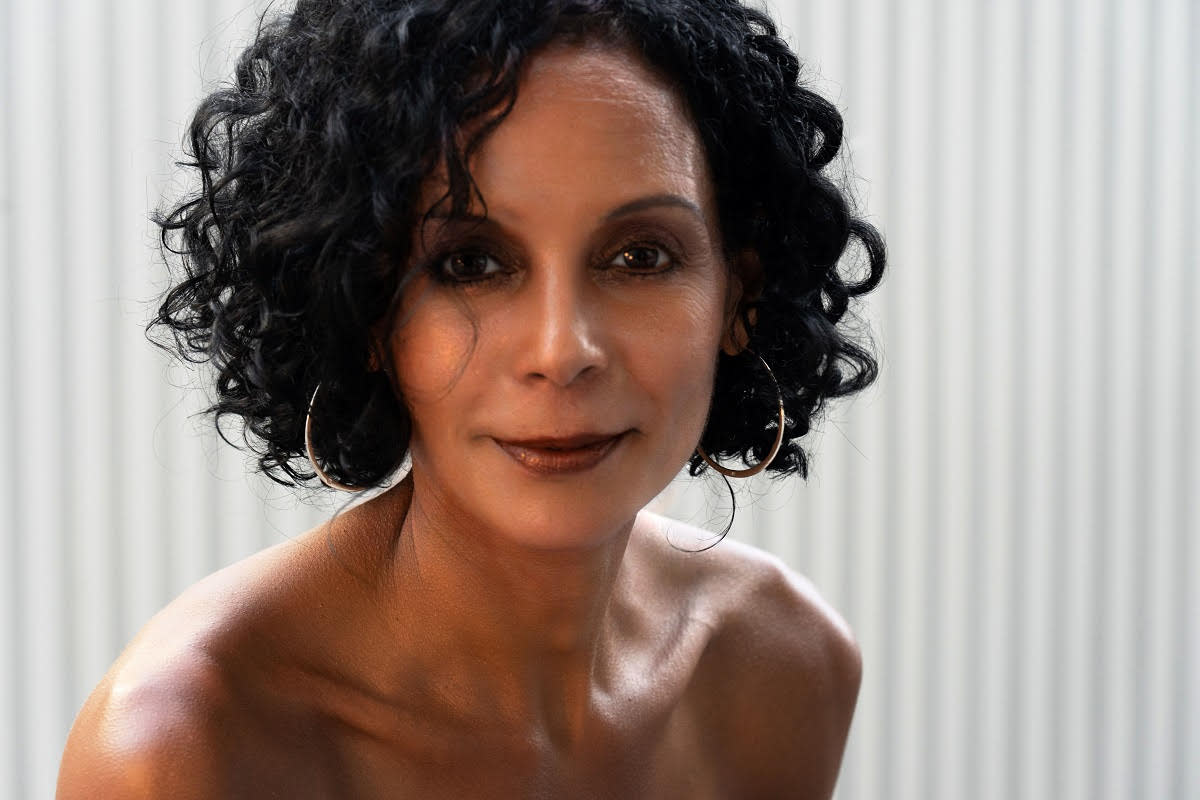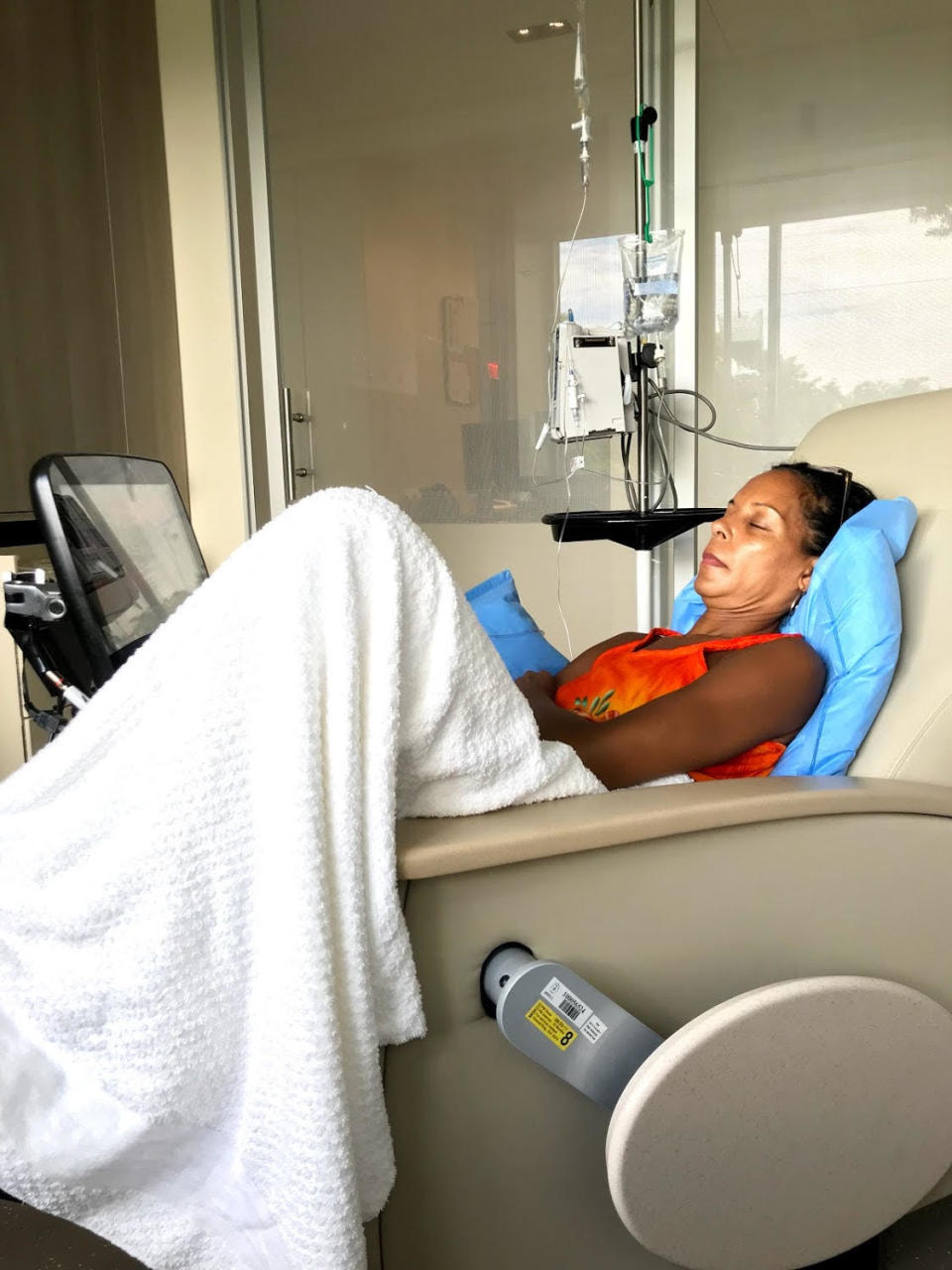This woman's story will make you reconsider skipping your routine colonoscopy

Jennifer Jones wasn’t overly concerned when she went in for her first routine colonoscopy at age 50. Jones, who was the first African-American Radio City Rockette, tells Yahoo Lifestyle that she had been having more gas than usual, but didn’t think much of it.
“I have family members with colitis who had similar symptoms,” she says. “But I thought maybe I was just allergic to gluten.” At the time, the American Cancer Society recommended that most people start getting a routine colonoscopy at age 50 (that has since been lowered to age 45), and Jones was simply following the guidelines.
But when she woke up after her colonoscopy, Jones says she was floored to hear her doctor say she had cancer. “I was still kind of out of it from the anesthesia, but I remember my doctor saying, ‘We were all surprised when we saw it,’” Jones says. “I was in shock when I left.”
The cancer was advanced
Jones was referred to a surgeon at Memorial Sloan Kettering Cancer Center, who had her undergo CT scans and MRIs to try to determine how advanced her cancer was. It was worse than Jones thought: She had stage III colon cancer, and it was close to stage IV — the most severe stage of cancer. “That took my breath away,” Jones says.
Jones’s doctor also informed her that her tumor was large. “I was worried about my future with a possible colostomy bag, and I was worried about my future in general,” she says. “I have two children — I want to be able to meet my grandchildren someday.”
The treatment plan ahead of her wasn’t easy. Jones’s medical team recommended that she undergo two different types of chemotherapy — one via pill form and one through an IV — and she was in for a lot of it. “I had eight rounds of the pill chemotherapy and six rounds of IV chemotherapy,” she says.

The IV therapy was the hardest. “It knocked me out for a few days afterward each time,” she says. The chemo caused Jones to suffer from extreme fatigue, a loss of appetite, sensitivity to cold and discoloration and blistering on her hands and feet. “My feet would also peel,” she says. Jones didn’t lose her hair, but it thinned out a bit.
She also had a severe reaction after her third IV chemotherapy treatment when her throat started to constrict. “It was horrible,” she says. “I would cough and wheeze.” Her doctor eventually lowered the potency and stretched out her IV treatment over a three-hour period to try to alleviate the symptoms.
While she didn’t exactly look forward to her IV chemotherapy sessions, Jones says she tried to make the best of them. “I set it up as if I were going on a date,” she says. “I’d look nice, do my nails the day before, wear a nice outfit and put on lipstick. And after the infusion, I’d reapply. I never let cancer get the upper hand of how I was going to uphold my life.” She also kept up her running routine, practiced hot yoga, meditated, ate well and prayed.
Eventually, it was time for surgery
Jones’s doctor removed a section of her colon, several lymph nodes on either side of her colon, and part of her rectum in December. She’s currently trying to figure out her new normal. “My body feels like it’s still trying to find a balance,” she says. Now, whenever she gets the urge to go to the bathroom, she needs to act fast. “I can’t hold it as long as I used to,” Jones says.
She’s been selective about what she eats and is slowly reintroducing certain foods to her diet. “I don’t know how my body is going to react to certain foods,” she says. Jones has also tried hard to walk regularly, which she believes has helped strengthen her body and her colon.

While Jones went through months of cancer treatment, she managed to keep her journey a secret from people who were outside of her inner circle. She told her close family members what she was going through, as well as her boss, but she didn’t tell her friends or co-workers. “Nobody knew,” she says. “I didn’t want them to look at me in a different way, and I didn’t want anyone’s pity.”
Now, Jones is hoping to raise awareness about the importance of colorectal cancer screening, as well as the fact that the recommended age for screening has been lowered to 45. Jones acknowledges that people are often nervous to get a colonoscopy, but she stresses that it’s important to know what’s going on inside your body. “Early detection is key,” she says. “If I had gone in at 45, my cancer stage would have been different.”
Jones has many follow-up appointments in her future, but she says she’s grateful to be alive. “I’m now cancer-free and I’m so happy about that.”
Read more from Yahoo Lifestyle:
‘My daughter beat cancer twice — and she’s only 6 years old’
Parents charged with manslaughter after child with 17-pound tumor dies
Follow us on Instagram, Facebook and Twitter for nonstop inspiration delivered fresh to your feed, every day.
